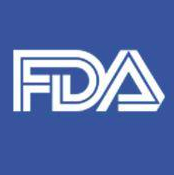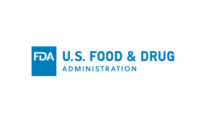Allergy Community Still Concerned About FDA’s Temporary Labeling Guidance

In May, the U.S. Food and Drug Administration (FDA) issued temporary guidance for food labeling in the wake of the COVID-19 pandemic. The guidance was temporarily updated due to food manufacturers’ claims that ingredient shortages and supply chain disruptions would require recipe reformulations—meaning the omission or substitution of minor ingredients. Taking the time to incorporate new labels would require production to slow down. To accommodate food manufacturers, FDA is allowing them to substitute up to 2 percent of ingredients without requiring changes to product labels.
FDA’s temporary guidance states that substitutions cannot include the Big 8 allergens. However, consumers who are allergic to ingredients outside of that list—like sesame, celery, or mustard, which are all considered allergens in the EU—still have cause for concern.
Since FDA’s issuance of temporary guidance, the allergy community has voiced many concerns about how this labeling flexibility could spell trouble for food-allergic consumers. After initially issuing the temporary guidance, FDA followed up with a Q&A to address some of the concerns facing the allergy community.
One of the recommendations FDA offered is that ingredient substitutions not reflected on a product label could instead be posted by the food manufacturer on their website. Another recommendation offered by FDA: alternative labeling at the point of sale.
In some circles, that’s not enough. Some allergy advocacy groups and consumers remain concerned that FDA’s temporary labeling flexibility:
- Is not reassuring for the consumer because they cannot fully trust what’s printed on a food label.
- Allows food companies to not follow the laws and regulations meant to protect children and food-allergic individuals.
- Is too vague, using words and phrases like “encourage,” “recommend,” and “should avoid”, words that have no legal meaning.
- Won’t reach most consumers, so the people most at risk won’t know to look at company websites for ingredient substitutions.
- Will tempt some food companies to cut costs by substituting cheaper and possibly unsafe allergenic ingredients.
- Could spark legal issues if it’s not consistent with food safety laws that were passed by Congress—and the fact that the guidance was issued without the standard public comment of rulemaking.
One resolution being discussed by allergy advocates is requiring food manufacturers to report ingredient substitutions to FDA, then the agency can publish a master list online that consumers can access any time. There’s also talk of labeling alternatives such as stickers to make consumers aware of ingredient substitutions.
For more information, consult the following resources:
FDA’s Temporary Policy Regarding Certain Food Labeling Requirements During the COVID-19 Public Health Emergency: Minor Formulation Changes and Vending Machines (Contains Nonbinding Recommendations)
Q&A on FDA’s Temporary Policy on Food Labeling Changes During COVID-19 Pandemic
Policy Docket—currently accepting comments
Looking for a reprint of this article?
From high-res PDFs to custom plaques, order your copy today!





